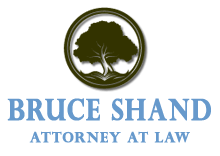Thinking Beyond Your Utah Last Will
If you also have an IRA, you probably named a beneficiary of that account on the custodian’s beneficiary form. The IRA beneficiary form decides who gets your IRA after your death; not your Will.
So, you prepared your Last Will and Testament. However, that does not mean your Will is the final word on the distribution of all of your assets. For instance, that common beneficiary form you may have completed without thinking through the consequences will govern your IRA likely.
Warning: do not designate your “estate” or “your revocable living trust” as the beneficiary of your IRA. This severely limits the distribution (and taxation) options available to your heirs. This matter was explored in a recent article in The Slott Report titled “IRAs and Wills Don’t Mix.”
While your “estate” or your “revocable living trust” can be the beneficiary of your IRA and your Will or Trust thereafter determines the distribution of the retirement funds, this might not be best idea tax-wise. IRAs are very specific and peculiar assets with very specific inheritance rules. For example, you must begin distributions from your IRA in accordance with the Minimum Required Distribution Rules if you are older than 70 ½. If your “estate” or your “revocable living trust” is the beneficiary of your IRA, then very “unfavorable” withdrawal rules may apply. Instead of the IRA being withdrawn over the life expectancy of the beneficiary (typically younger than the plan owner), the funds must be withdrawn within five years or perhaps over your remaining life expectancy. Yes, these rules can get very complex.
Make sure you consult with competent legal counsel when coordinating the distributions from your Last Will and from your IRA.
Reference: The Slott Report (July 29, 2013) “IRAs and Wills Don’t Mix“








Leave a Reply
Want to join the discussion?Feel free to contribute!